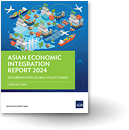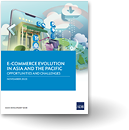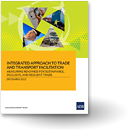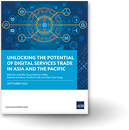Is it a problem when investors can sue the state?
On May 17, the government of the Republic of Korea decided not to pursue renegotiation of the Investor-State Dispute Settlement Clause (ISDS) that is included in the Republic of Korea-US Free Trade Agreement. By contrast, the Australian government has opposed the inclusion of an ISDS clause in the Trans-Pacific Partnership Agreement (TPP) currently under negotiation.
Neither country is unfamiliar with the ISDS clause, which is a common feature in Bilateral Investment Treaties (BITs). This clause gives businesses from one country power to take international legal action against the government of another over breaches of agreement. It allows either party to bypass domestic courts and refer disputes to an international arbitration panel.
In fact, both the Republic of Korea and Australia have signed numerous BITs with this clause over the years – 91 by the Republic of Korea and 21 by Australia. Yet, while the government of the Republic of Korea has never been sued, the Australian government was recently hit by lawsuits against some sensitive health and environmental initiatives - such as their decision to put plain packaging on cigarettes -and has decided to no longer include ISDS clauses in any of its future trade agreements.
The public reaction both countries have experienced around their decisions highlight the unease that has arisen as ISDS clauses have made the transition from a part of relatively obscure bilateral treaties into highly-publicized free trade agreements (FTAs). Despite this change in venue, most adjudicated cases (63% in 2011) continue to arise from BITs not FTAs.
The arguments for and against investor-state dispute clauses are straightforward. Promoters suggest that they will attract investment by reducing the risk of investment in countries where judicial enforcement of contracts is weak. Meanwhile, detractors argue that, among other problems, they impinge on state sovereignty and give foreign investors greater rights than domestic investors.
The monetary implications of a case may be significant for a poor country. However implementation has changed over time. Increasingly, countries are resorting to the annulment procedure following an unfavorable ruling. Enforcement can also be an issue. In March, the US resorted to threatening to remove Argentina from its beneficiary status to the Generalized System of Preferences (a unilateral trade preference program) for non-compliance with two arbitration awards in favor of US firms.
A more salient question for countries in Asia may be the perceived sovereignty impact of an ISDS clause. However it is telling that all ASEAN countries have multiple BITS. Thus including an ISDS clause in a future trade agreement would not be a departure from existing policy.
In answer to the question posed in the title, the popularity of BITs suggests that many countries have implicitly agreed that an ISDS clause for investment is politically acceptable. And the literature suggests that for countries like the Republic of Korea and many of its neighbors in ASEAN, which already have strong institutional environments, an ISDS clause is likely to promote foreign investment. As the Australia example reminds us however, outcomes are highly state specific, and careful political economy analysis is needed to determine the suitability for individual cases.




